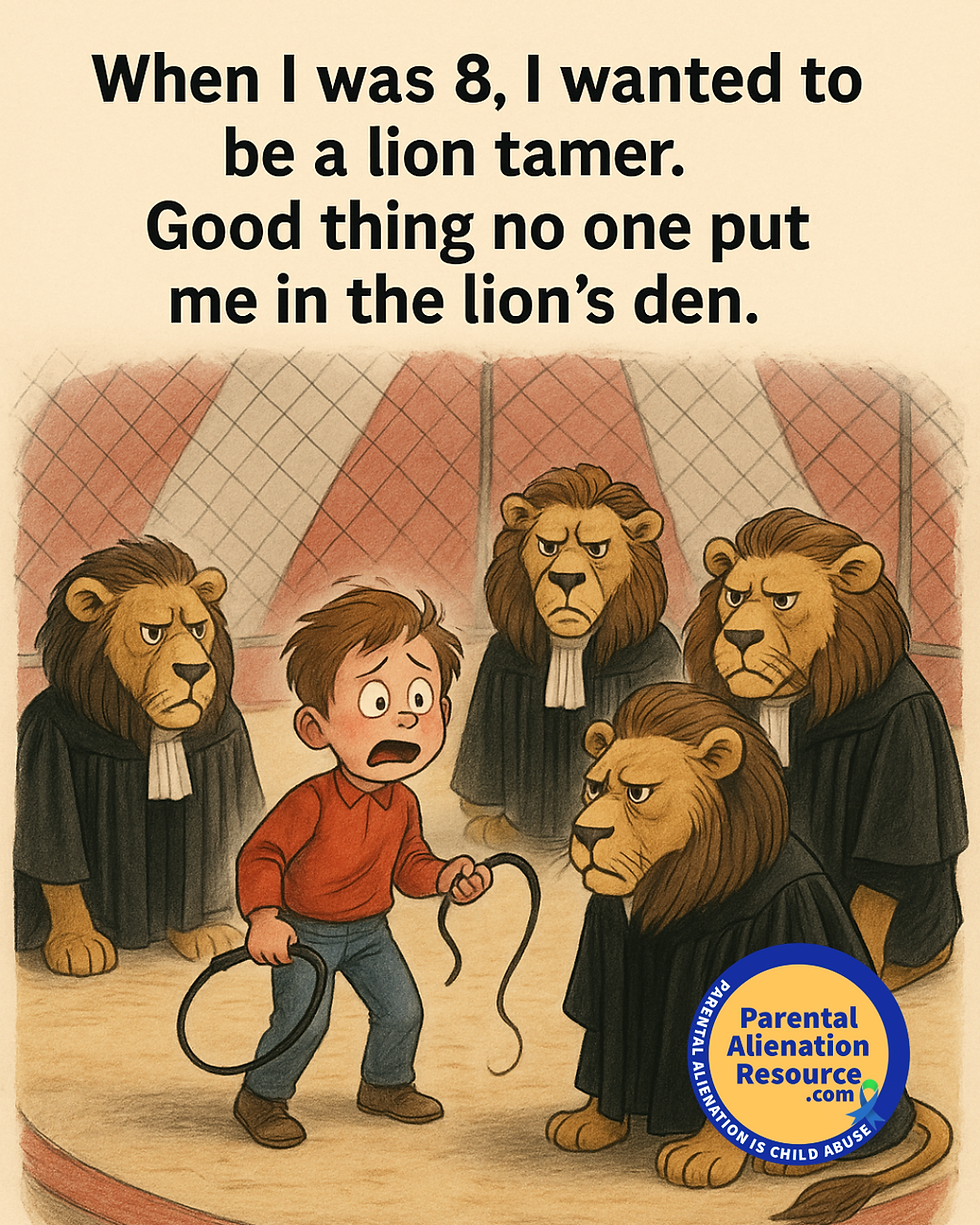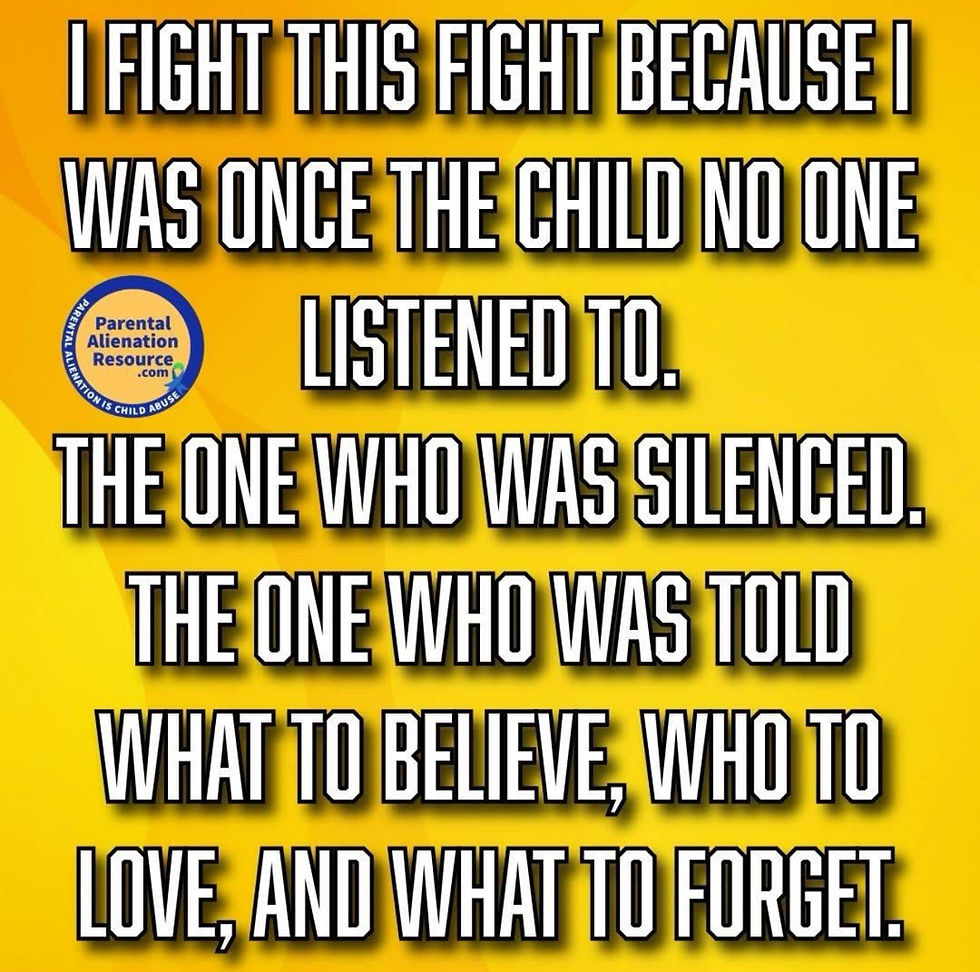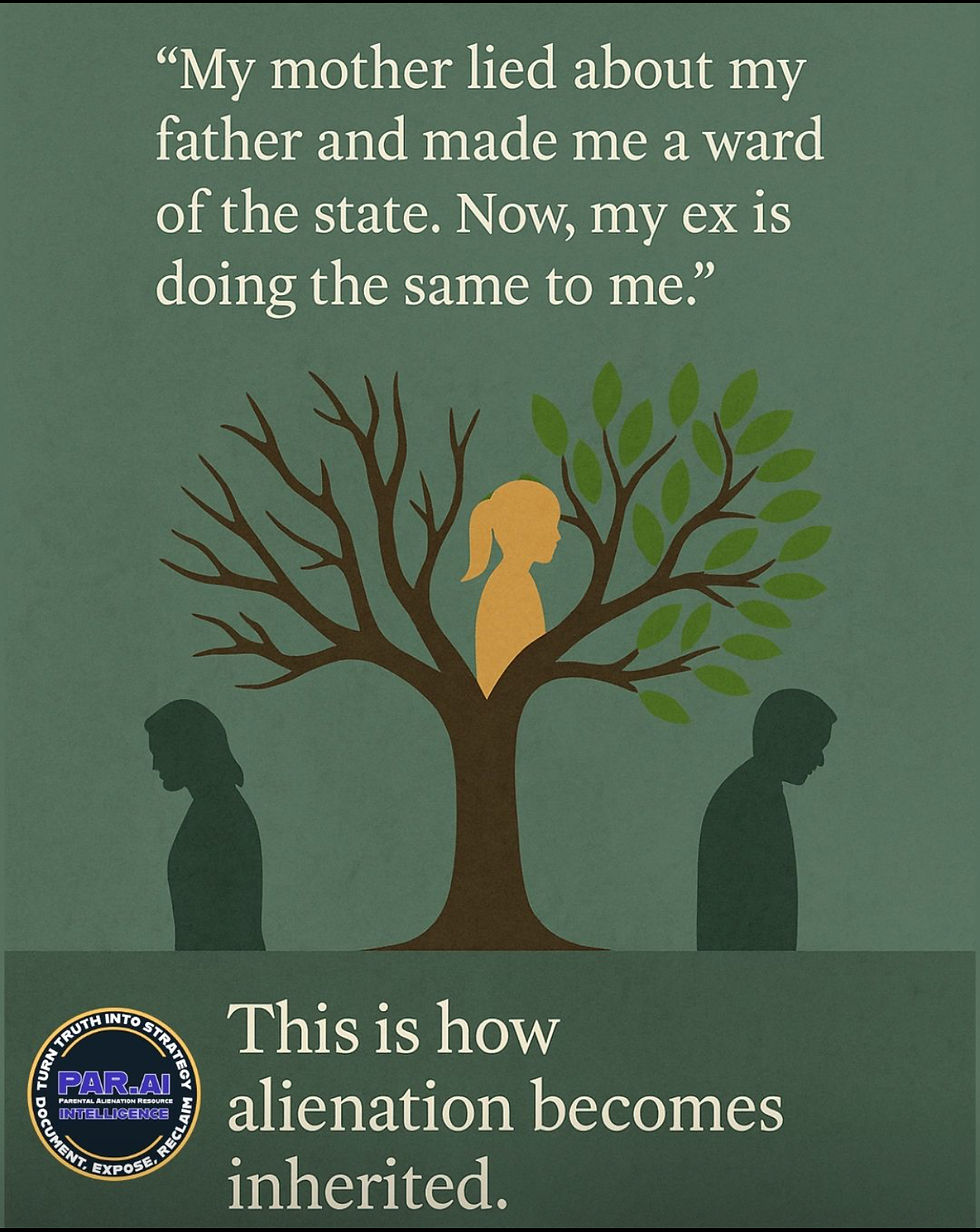“Good Thing No One Put Me in the Lion’s Den”
- Jul 22, 2025
- 2 min read

Why Family Courts Need to Stop Placing Children in Impossible Positions
When I was eight years old, I wanted to be a lion tamer. I also wanted to fly, eat candy for every meal, and live in a treehouse with a pet monkey. Thankfully, the adults around me had the sense to guide me, not indulge every passing fantasy, no matter how passionate it seemed. They understood that part of being a responsible adult meant offering boundaries, not blind obedience to a child’s desires.
So why, when it comes to high-conflict custody cases, especially those involving parental alienation, are we handing children metaphorical whips and sending them into the lion’s den?
In family courts across the world, judges and professionals are placing immense pressure on children by honoring their stated preferences as though they were free, rational decisions made without coercion or manipulation. But children who are victims of alienation are not making these decisions freely. They are being coached, influenced, and psychologically entangled in one parent’s destructive agenda.
This is not a child’s voice, it’s a script.
The Illusion of Choice
Family court systems frequently default to “child-centric” decisions, interpreting the child’s desire to reject a parent as a legitimate expression of autonomy. But in alienation cases, the child’s rejection often masks a deeper reality: fear, guilt, enmeshment, and emotional survival. Aligning with the alienating parent becomes a defense mechanism. Agreeing with them ensures safety, whether it’s emotional, physical, or psychological.
This dynamic isn’t empowerment. It’s trauma disguised as a choice.
Children Need Protection, Not Permission to Choose Sides
Just like no reasonable adult would drop a child into a lion’s cage because they said they wanted to tame lions, we should not place the burden of familial loyalty and emotional warfare onto the shoulders of a child. It’s not fair. It’s not protective. And it’s not justice.
We Must Start Asking the Right Questions
Instead of:
“What does the child say they want?”
Ask:
“What has the child been through?”
“What pressures are influencing their behavior?”
“Whose narrative are they echoing?”
The voice of the child matters. But it must be interpreted through a trauma-informed lens, especially when that voice is being weaponized by a parent bent on control.
The Stakes Are Too High
The long-term consequences of unchecked parental alienation are devastating:
• Attachment disorders
• Identity confusion
• Depression and anxiety
• A lifelong legacy of broken trust
It’s time we recognize that the child in the courtroom isn’t holding a whip, they’re clinging to survival. And unless courts, professionals, and society start seeing the lions for what they really are, abuse, coercion, control, we will continue to send children into battlefields they were never meant to survive.
Powered by PARai
Parental Alienation Resource on ChatGpT





Comments